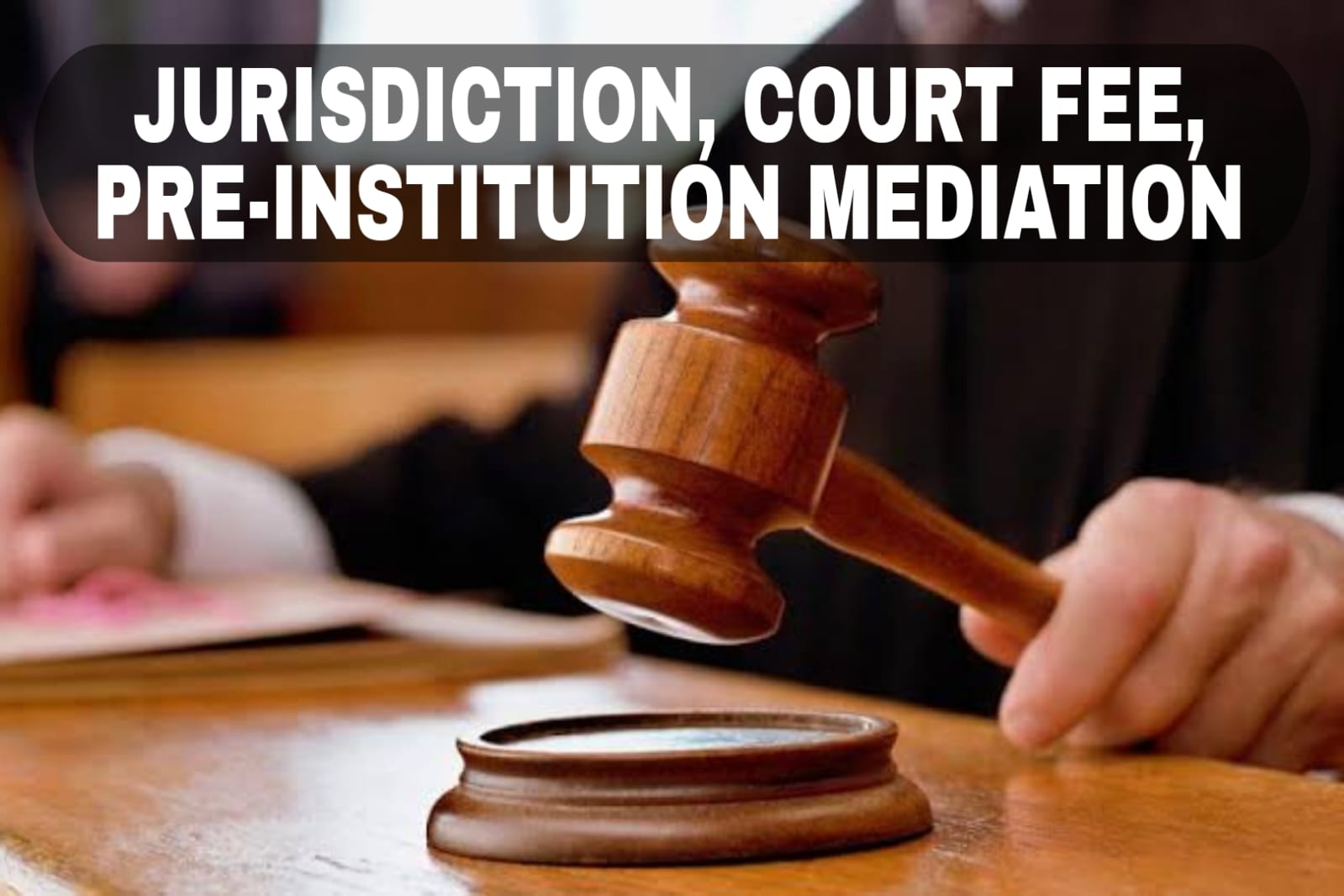Legal Procedural Insights: Jurisdiction, Court Fees, and Mediation in Civil and Commercial Disputes
Let us talk about the interaction between jurisdictional contours under the CPC and exclusive jurisdiction clauses commonly found in civil and commercial contracts. It delves into the implications of such clauses, often referred to as 'ouster clauses,' and addresses potential objections based on public policy.
Additionally, let us examine the importance of payment of court fees and compliance with party details in initiating a civil suit, emphasizing their procedural significance and the potential hurdles in case of non-compliance under Order VI Rule 14A of the CPC.
The concept of pre-institution mediation in commercial suits, mandated by the Commercial Courts Act 2015, is also discussed. Notably, the article highlights the recent Supreme Court decision in Patil Automation v Rakheja Engineers, affirming the mandatory nature of pre-institution mediation.
Exclusive Jurisdiction Clauses and CPC Interplay
An exclusive jurisdiction clause signifies an agreement between parties to resolve disputes in a specific court. Often termed 'ouster clauses,' they face challenges on grounds of public policy. The Supreme Court, in Hakam Singh v Gammon (India) Ltd, clarified that such clauses are valid if two courts have concurrent jurisdiction, and the agreement doesn't violate Sections 23 and 28 of the Contract Act.
The interpretation of exclusive jurisdiction clauses was further refined in ABC Laminart v. AP Agencies, Salem, where the mere presence of such a clause does not necessarily oust the jurisdiction of all other courts. The intention depends on the wording and context of the agreement, as exemplified in Swastik Gases Pvt Ltd v. Indian Oil Corp Ltd.
Statutes such as section 79 of the Real Estate (Regulation and Development) Act 2016 further restrict challenges to actions under the statute to specified forums, impacting civil court jurisdiction as established in Dhulabhai v. State of Madhya Pradesh.
Payment of Court Fees: A Prerequisite for Civil Suits
Court fees are essential for legal proceedings, serving both revenue generation and deterring frivolous litigation. The Court Fees Act, 1870, and state legislation regulate court fees. Section 149 CPC allows the court discretion to permit curing of deficit court fees, emphasizing that this procedural defect is curable. The Supreme Court, in Ajay Dabra v. Pyare Ram, clarified that once cured, the defect is retroactively considered resolved.
To ensure access to justice, the CPC provides exemptions for indigent litigants under Order 33 Rule 1. Sections 3 and 4 of the Court Fees Act, 1870, outline fees for high courts, and Schedule I and Schedule II cover ad valorem and fixed fees, respectively. Refunds are possible in specific situations, and court fees are typically collected through stamps.
Karnataka Court Fee and Suit Valuation Act 1958 supplements guidelines for paying court fees. Section 4 emphasizes payment before exhibiting chargeable documents, and Section 10 mandates the inclusion of particulars on subject matter valuation in the plaint.
Requirements of Order VI Rule 14A
Order VI Rule 14A of the CPC mandates filing a statement alongside pleadings containing the correct address, known as the "registered address of the party." Failure to comply or providing false information can lead to severe consequences, such as staying the suit or striking out the defense, as recognized by the Delhi High Court in Gagan Kakkar v. Dharampal Chhabra.
Pre-Institution Mediation under the Commercial Courts Act
The Commercial Courts Act, 2015, promotes alternative dispute resolution, specifically pre-institution mediation for commercial disputes. Section 12-A mandates trying mediation before filing a commercial suit, as reaffirmed in Patil Automation. Failure to comply can result in rejection under Order 7 Rule 11 of the CPC.
However, Section 12-A limits pre-institution mediation to suits without urgent interim relief applications. Parties attempting to circumvent this by falsely seeking interim reliefs face scrutiny, as emphasized in Yamini Manohar v. TKD Keethi, where the court assesses the legitimacy of such requests.

